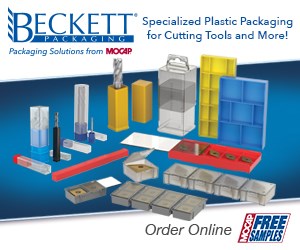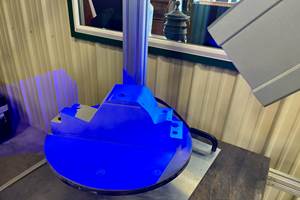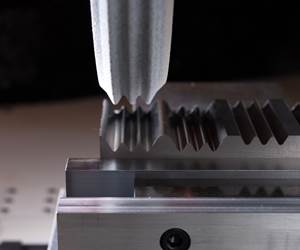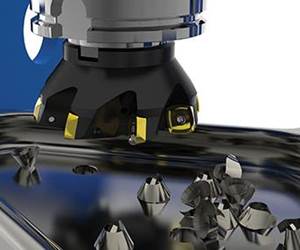Business Issues Faced By Moldmakers Worldwide
The major business issues being faced by moldmakers worldwide are the customer demand for quick turnaround of high quality molds, declining prices and profit margins, unavailability of skilled labor and global competition. These are but a few of the findings in the recently issued CIMdata research report for moldmakers titled, “The Worldwide Moldmaking Market and How to Compete.
The major business issues being faced by moldmakers worldwide are the customer demand for quick turnaround of high quality molds, declining prices and profit margins, unavailability of skilled labor and global competition. These are but a few of the findings in the recently issued CIMdata research report for moldmakers titled, “The Worldwide Moldmaking Market and How to Compete.”
Moldmakers are operating in a difficult business environment that presents a number of management challenges. They are under intense business pressures, and many moldmakers are struggling. The overall market for molds and other tools is experiencing only modest growth. At the same time, worldwide competition is fierce, and moldmakers demand that their suppliers continually improve delivery times, increase quality and lower costs.
In the CIMdata study, 40 percent of worldwide moldmakers stated that the internal operational challenge of satisfying customer demands and at the same time achieving business goals is their primary business issue. Meeting delivery requirements is paramount. Remaining competitive in the market requires continual reductions in delivery time. Moldmakers worldwide are being forced to reduce delivery times, and they are held accountable if committed dates are missed.
The research pointed out a number of distinctions that exist among moldmakers in different geographical areas. For example, European and Japanese firms define internal operational concerns to be their primary business issue more frequently than do North American moldmakers.
Within this internal operations grouping, declining price and profit margins coupled with the pressure to build a mold in less time than before are cited by half of the moldmakers. Controlling cost is the next most often mentioned internal operational issue. Japanese moldmakers cite the need to improve quality more frequently than do their North American and European counterparts. The Japanese firms also expend a greater percentage of their internal management efforts on up-front planning.
The second most common business challenge-—cited by 20 percent of moldmakers—is the unavailability of skilled personnel, along with the requirement to provide extensive training for workers. It is of most concern to North American companies, of less concern to European firms and was not mentioned by any of the Japanese moldmakers surveyed. In North America, fewer qualified young people are opting to become skilled craftsmen, as the emphasis placed on entering college continues to increase. As older moldmakers retire from the workforce, this issue could become acute.
Meeting the threat of foreign competition was the third most frequently mentioned issue. Moldmakers are in a highly competitive environment. It drives most management decisions and actions. Competition from Asia Pacific, often from China, is seriously impacting North American and European firms. Moldmakers have no qualms concerning where they will go to get a quality tool at the lowest price.
North American and European moldmakers are intensely troubled by foreign competition, often to a point of obsession, although European firms are somewhat more concerned than those in North America. In contrast, Japanese moldmakers are only minimally impacted by foreign competition, and for the most part, the issue is not on their radar screen. Instead, they are primarily focused on developing international markets.
Other business issues mentioned by moldmakers in this study include managing cash flow, market development, increasing program responsibility, strategic planning, legislation and political issues, technology adoption and securing orders.
Managing cash flow is a significant challenge to North American moldmakers, a minor hurdle for European firms and of no concern to Japanese moldmakers. This presumably relates to the extent of government support that is provided to private industry within each of the areas. Lack of adequate cash flow can be a major constraint for U.S. firms, as they are typically required to use retained earnings or bank loans when procuring new machine tools or advanced software solutions to upgrade their processes. In contrast, some national governments provide direct funding for select industries.
As noted above, developing new markets is a top business issue in Japan. It ranks only behind their focus on internal operations. As such, the Japanese moldmakers are on the offense, looking for more markets, while the North American and European firms are primarily playing defense, concerned about intrusion by foreign moldmakers into their home market.
Related Content
A Case for Combining Workholding with Optical Scanning
Automotive dies and die inserts are often complex, one-off parts with little room for error. Integrity Tool's investments in modular workholding tools and 3D optical scanning have allowed the company to create niche capabilities for its CNC machined parts.
Read More10 Things to Know About Creep-Feed Grinding
Because of the high material removal rate creep-feed grinding can deliver in challenging materials, grinding might not be just the last step in the process—it might be the process.
Read More10 Tips for Titanium
Simple process considerations can increase your productivity in milling titanium alloys.
Read More7 CNC Parameters You Should Know
Parameters tell the CNC every little detail about the specific machine tool being used, and how all CNC features and functions are to be utilized.
Read MoreRead Next
A History of Precision: The Invention and Evolution of Swiss-Style Machining
In the late 1800s, a new technology — Swiss-type machines — emerged to serve Switzerland’s growing watchmaking industry. Today, Swiss-machined parts are ubiquitous, and there’s a good reason for that: No other machining technology can produce tiny, complex components more efficiently or at higher quality.
Read MoreIncreasing Productivity with Digitalization and AI
Job shops are implementing automation and digitalization into workflows to eliminate set up time and increase repeatability in production.
Read MoreIMTS Elevate Workshop: Make Your Shop a Top Shop
This ½-day program offers attendees insight into the results from this year's Modern Machine Shop Top Shops annual benchmarking survey.
Read More.png;maxWidth=970;quality=90)











.png;maxWidth=300;quality=90)










